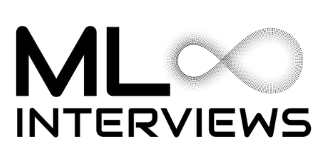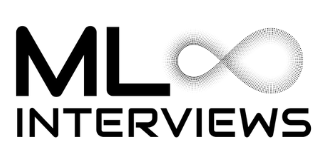Meta Machine Learning Interview Process
Meta stands out as a premier destination for machine learning research and engineering, driven by its cutting-edge initiatives and specialized labs. At the heart of Meta’s innovation are entities like Meta AI and Reality Labs, where groundbreaking work is conducted in areas such as computer vision, natural language processing, and reinforcement learning. Meta AI, for example, focuses on advancing state-of-the-art AI through projects like PyTorch, a widely adopted deep learning framework, and AI-powered tools that enhance user experiences across Meta’s platforms. Reality Labs, on the other hand, is at the forefront of developing the next generation of immersive technologies, including augmented and virtual reality, with a strong emphasis on spatial computing and embodied AI. These labs not only push the boundaries of what’s possible in AI but also create a collaborative environment where researchers and engineers can thrive. With access to unparalleled resources, a culture of open research, and a mission to build the future of digital interaction, Meta provides an exceptional environment for those looking to make significant contributions to the field of machine learning.
Interview Process
Meta has a well structured and rigorous process designed to identify top talent. Here’s what you can expect at each stage:
1. Recruiter Screening
The journey begins with an initial recruiter screening. This stage is typically a phone or video conversation where the recruiter seeks to understand your background, experience, and interest in the role. It’s an opportunity for you to highlight your relevant experience, discuss your career goals, and ask questions about the role and team you’re applying to.
2. Technical Screening
If you pass the recruiter screening, the next step is a technical screening, usually conducted via phone or video. This interview focuses on your knowledge of machine learning algorithms, data structures, and general coding skills. You might be asked to solve coding problems, discuss your experience with various ML models, or explain how you’ve approached specific challenges in past projects. This stage assesses whether you have the technical chops necessary for the role.
3. Onsite Interviews
Candidates who excel in the technical screening are invited to a series of onsite interviews, which are the most intensive part of the process. The onsite interviews typically consist of four key components:
-
Coding Interview: This interview tests your ability to write clean, efficient code under pressure. You may be given problems involving algorithms and data structures. Your goal is to demonstrate strong problem-solving skills and coding proficiency. Meta usually asks for multiple coding questions within each round and focuses on code quality, speed and correctness.
-
Machine Learning System Design Interview: In this session, you’ll be asked to design complex machine learning systems. You might be tasked with designing a recommendation system, an end-to-end ML pipeline, or a scalable architecture for deploying models. The interviewer will assess your understanding of system design principles, scalability, and how to effectively integrate ML components.
-
Machine Learning Coding Interview: Distinct from the general coding interview, this session focuses on your ability to implement machine learning algorithms and solve related problems using code. You might need to implement algorithms like gradient descent, decision trees, or neural networks, demonstrating your ability to translate theoretical knowledge into practical solutions.
-
Behavioral Interview: Meta places a strong emphasis on cultural fit and collaboration. In the behavioral interview, you’ll be asked about your previous experiences, how you work in teams, handle challenges, and align with Meta’s values. This is your chance to showcase your interpersonal skills, resilience, and how you’ve successfully navigated complex projects.
4. Hiring Committee Discussion
After your onsite interviews, the hiring committee—composed of various stakeholders—reviews your performance across all stages. This discussion focuses on whether your skills, experience, and interview performance align with the role’s requirements and Meta’s expectations. The committee evaluates your technical abilities, cultural fit, and potential to contribute to the team.
5. Offer and Decision
If the hiring committee reaches a consensus in your favor, you’ll receive an offer. This stage includes details on compensation, role expectations, team placement, and next steps. It’s also your opportunity to ask any remaining questions and negotiate terms if necessary.
Compensation
The compensation for machine learning engineers at Meta varies based on experience, level, location, and other factors such as performance and stock options. Meta’s compensation packages are designed to attract the best in the field, and they are generally seen as some of the most attractive in the tech industry, especially when considering the potential upside of stock options. This makes Meta a highly desirable destination for machine learning engineers looking to maximize their earnings potential.
Here’s a general overview of the levels and the corresponding salary ranges (total compensation) for machine learning engineers at Meta:
| Level | Experience | Total Compensation | Base Salary | Stock Options | Bonus |
|---|---|---|---|---|---|
| Entry-Level (E3) | 0-2 years | $150,000 - $200,000 | $120,000 - $140,000 | $20,000 - $40,000/year | $10,000 - $20,000 |
| Mid-Level (E4) | 2-5 years | $200,000 - $300,000 | $140,000 - $170,000 | $40,000 - $80,000/year | $20,000 - $50,000 |
| Senior Engineer (E5) | 5-8 years | $300,000 - $450,000 | $170,000 - $200,000 | $80,000 - $150,000/year | $40,000 - $80,000 |
| Staff Engineer (E6) | 8-12 years | $450,000 - $600,000 | $200,000 - $230,000 | $150,000 - $250,000/year | $80,000 - $120,000 |
| Senior Staff Engineer (E7) | 12+ years | $600,000 - $900,000 | $230,000 - $280,000 | $250,000 - $400,000/year | $120,000 - $200,000 |
| Principal Engineer (E8) | Highly experienced | $900,000 - $1,200,000+ | $280,000 - $350,000 | $400,000 - $700,000/year | $200,000 - $300,000+ |
Core Values
Meta’s core values are integral to the company’s culture and guide decision-making, collaboration, and innovation across the organization. Knowing details of these core values can greatly help during the interview process, especially behavioral interview.
-
Move Fast: Meta encourages a culture of agility and quick decision-making. The idea is to prioritize speed and efficiency, which can lead to rapid innovation and staying ahead of competitors.
-
Focus on Long-Term Impact: Meta emphasizes building technologies and products that will have a lasting impact on the world. It’s about thinking big and working on projects that will matter in the long run.
-
Build Awesome Things: At Meta, there is a strong emphasis on creativity, innovation, and building products that users love. This value encourages employees to take pride in their work and push the boundaries of what’s possible.
-
Live in the Future: Meta aims to be at the forefront of technology, always looking ahead to what’s next. Employees are encouraged to think futuristically and anticipate the needs and opportunities of tomorrow.
-
Be Direct and Respect Your Colleagues: Open, honest communication and mutual respect are central to Meta’s culture. Employees are encouraged to be straightforward in their communication while maintaining a respectful and collaborative environment.
-
Meta, Metamates, Me: This value emphasizes the importance of prioritizing the company’s mission (Meta), working collaboratively with colleagues (Metamates), and then considering individual interests (Me). It’s about putting the collective success of the organization and team before personal gains.
In conclusion, Meta’s interview process is highly competitive with a focus on deep technical understanding of machine learning and strong coding skills. They also strongly look for cultural fit through identifying several behavioral traits and how they fit with the company’s core values. Meta provides an environment where machine learning engineers can thrive, supported by industry-leading compensation that reflects the value they bring to the organization.


